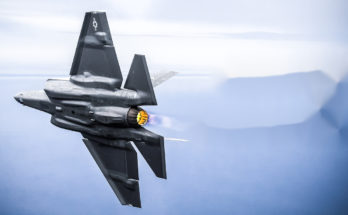After being held up regarding the previous U.S. Administration’s concerns over human rights, the Bahrain F-16 deal may get a boost from the new U.S. President.
U.S. Senator Bob Corker (R-TN) said on January 30, 2017 that he believes U.S. President Donald Trump will approve a sale of F-16 fighter jets to Bahrain. That sale has previously been stalled, over former U.S. President Barack Obama’s objections to allegations of human rights abuses in the Gulf country.
Defense News quoted Senator Corker, who is the Chairman of the Senate Foreign Relations Committee, as saying, “I’m hoping the Bahrain deal is going to roll out without the restrictions. I think it could happen soon.”
The restrictions he referred to pertained to the Obama-era concerns about human rights. In September 2016, as U.S. officials told Reuters that fighter jet sales to three Gulf countries were imminent, Bloomberg News reported, “[the Obama Administration] won’t complete approval for Bahrain to buy as many as 19 F-16 fighter jets from Lockheed Martin Corp. and upgrades for older ones for almost $4 billion until the Gulf ally demonstrates progress on human rights.”
The Bloomberg News reported noted that U.S. officials did not specify what would constitute progress on human rights.
In November 2016, the United States approved possible fighter jet sales to Kuwait and Qatar — as indicated in the Reuters reporting from two months before — but there was no mention of Bahrain, meaning that, even as the Obama Administration came to an end, the former President was not satisfied that his conditions on human rights progress had been met. Just prior to leaving office, President Obama’s Administration condemned the execution of three men convicted of a bomb attack on security forces.
President Trump, who took office earlier this month, has not explicitly stated his position on Bahrain generally or the F-16 sale specifically. Senator Corker has hinted at the Republican position, saying, “I don’t think those are the kinds of things that belong in an arms sales agreement, there are other ways of dealing with it.”
It is likely he views the Trump Administration as agreeing with him on that point, particularly given the new Administration’s desire to more aggressively counter Iran by forging better relationships with Gulf countries than those that his predecessor had. Though the Obama Administration completed or offered arms contracts worth over hundreds of billions of dollars to the Gulf, many of the area’s countries viewed his criticism on human rights distastefully and were skeptical of the nuclear deal reached with Iran in 2015.
Military markets analyst, covering Eurasia, Middle East, and Africa.




